 W
WFrancisco Esteban Acuña de Figueroa was a Uruguayan poet and writer. He was born in Montevideo, on September 3, 1791 and died on October 6, 1862. He was the son of the Treasurer of the Royal Treasury, Jacinto Acuña de Figueroa.
 W
WVictoria Aihar, is a Uruguayan web designer, programmer and author.
 W
WClaudia Amengual Puceiro is a Uruguayan writer and translator. She is a recipient of the Sor Juana Inés de la Cruz Prize.
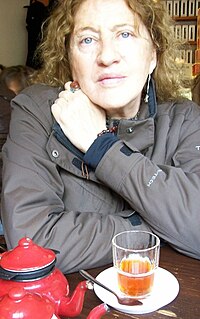 W
WTeresa Amy was a Uruguayan teacher, poet, and translator.
 W
WMatías "Dino" Armas Lago is a Uruguayan theater director and writer.
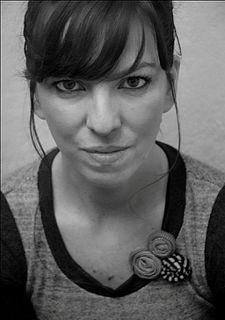 W
WCarolina Bello is a Uruguayan writer. She is an expert in social communication, with a postgraduate degree in art criticism.
 W
WFernando Butazzoni is a Uruguayan novelist and journalist. Translated into a dozen languages, is winner of many international awards for literature and cinema. In 1979, at the age of 25, he won the Casa de las Américas Literature Award. The Mexican writer and screenwriter Guillermo Arriaga described this work as "A pretty fucking powerful look at the relationship between life and death"
 W
WEsther de Cáceres was a poet and writer from Uruguay.
 W
WJulio J. Casal was an Uruguayan poet and critic.
 W
WCecilia Curbelo, also known as Ceci, is an Uruguayan journalist, columnist, writer and publishing.
 W
WDaniel Gianola is a geneticist based at the University of Wisconsin-Madison (US), reputed for his contributions in quantitative genetics to the fields of animal and plant breeding. In the early 1980s, Gianola extended best linear unbiased prediction to the non-linear domain for analysis of categorical traits, using the classical threshold model of Sewall Wright. Subsequently, he pioneered the use of Bayesian methodologies and Monte Carlo Markov chain methods in quantitative genetics. He also revived early work by Sewall Wright on structural equation models and cast their application in the context of modern quantitative genetics and statistical methodology. His group in Wisconsin was the first in the world applying non-parametric methods, such as reproducing Kernel Hilbert spaces regression and Bayesian neural networks, to genome-enabled selection in animal breeding, agriculture and whole-genome prediction of complex traits or diseases. Gianola published extensively on thresholds models, Bayesian theory, prediction of complex traits using mixed model methodology, hierarchical Bayesian regression procedures and machine learning techniques. Gianola has been also involved in whole-genome prediction of skin and bladder cancer in humans. He has taught extensively in more than twenty countries including recurrent visiting professorships at the Universidad Politecnica de Valencia (Spain), the Norwegian University of Life Sciences (Norway), Aarhus University (Denmark), Georg-August University (Germany) and the Technical University of Munich (Germany). He has been an Honorary Researcher at the Pasteur Institut de Montevideo since 2016. In an Editorial contained in a volume published in Gianola's honor in the Journal of Animal Breeding and Genetics (2017), it was stated that "He is probably the one lecturer in animal breeding and genetics, who has the biggest impact on the largest number of followers in the numerous classes and courses he has taught with never-ending energy all across the world."
 W
WBartolomé José Hidalgo was a Uruguayan writer and poet.
 W
WJules Laforgue was a Franco-Uruguayan poet, often referred to as a Symbolist poet. Critics and commentators have also pointed to Impressionism as a direct influence and his poetry has been called "part-symbolist, part-impressionist". Laforgue was a model for Pierre-Auguste Renoir, including for Renoir's 1881 painting Luncheon of the Boating Party.
 W
WCirce Maia,, is a Uruguayan poet, essayist, translator, and teacher.
 W
WLaura Malosetti Costa is a Uruguayan-Argentine researcher and essayist who writes about art history. She is also a curator of art exhibitions and the author of several books on Latin American art. She was recognized with the Konex Award in 2006 and 2016.
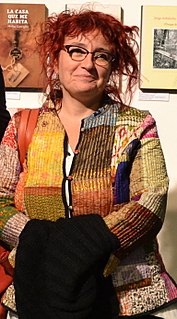 W
WMariana Percovich is a Uruguayan playwright, teacher, and theater director. She graduated as a literature professor from the Instituto de Profesores Artigas (IPA) of Montevideo. Prior to her reintegration into EMAD, she had been the Performing Arts Coordinator of her country's Ministry of Education and Culture, where she spent four years. She has won the Florencio Award twice. She has been part of the company Complot since 2007.
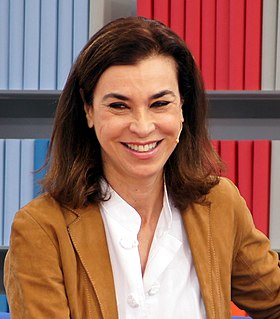 W
WCarmen Posadas is a prize-winning Uruguayan-Spanish author of books for children. She also writes for film and television. She is a recipient of the Premio Planeta de Novela.
 W
WChil (Enrique) Meyer Rajchman a.k.a. Henryk Reichman, nom de guerre Henryk Ruminowski was one of about 70 Jewish prisoners who survived the Holocaust after participating in the August 2, 1943 revolt at the Treblinka extermination camp in Poland. He reached Warsaw, where he participated in the resistance in the city, before it was liberated by the Soviet Union.
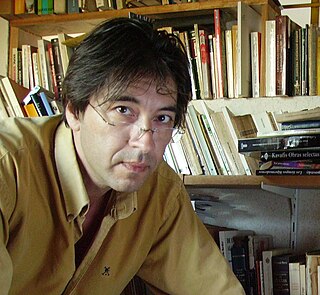 W
WCarlos Rehermann is a Uruguayan novelist and playwright, active since 1990. He has published four novels and staged five plays. He writes weekly columns on the arts. He won the Florencio Prize in 2002 for his play "A la guerra en taxi". Florencio-Nominated, 2006, winner, "Solos en el escenario"-Prize—Centro Cultural de España—for "Basura" ("Filth"). Premio Nacional de Letras for "El examen", based on an episode of the life of Primo Levi, 2008. COFONTE Prize of Dramaturgy for "El examen", 2008.
 W
WBlanca Isabel Rodríguez González is a Uruguayan journalist, writer, and literature teacher. She is the host of Subrayado, the main newscast of Canal 10. She is the only woman host of a flagship news program in Uruguay, and has directed several journalistic series interviewing prominent national and international figures. She has received the Woman of the Year award on several occasions in recognition of her journalistic work.
 W
WPetrona Rosende (1797–1863) was the first female journalist in Argentina. She was born in Montevideo, Uruguay, but during Montevideo's occupation by Brazil she moved to Buenos Aires. She edited the feminist Buenos Aires periodical La Aljaba. Its motto was "We will be free of men's injustice only when we no longer live among them." All of its 18 issues are now held at the Museo Mitre.
 W
WJules Supervielle was a Franco-Uruguayan poet and writer born in Montevideo. He was nominated for the Nobel Prize in Literature three times.
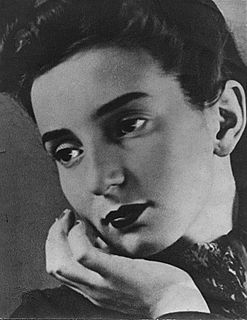 W
WIdea Vilariño Romani was a Uruguayan poet, essayist and literary critic.
 W
WIda Vitale is a Uruguayan writer.